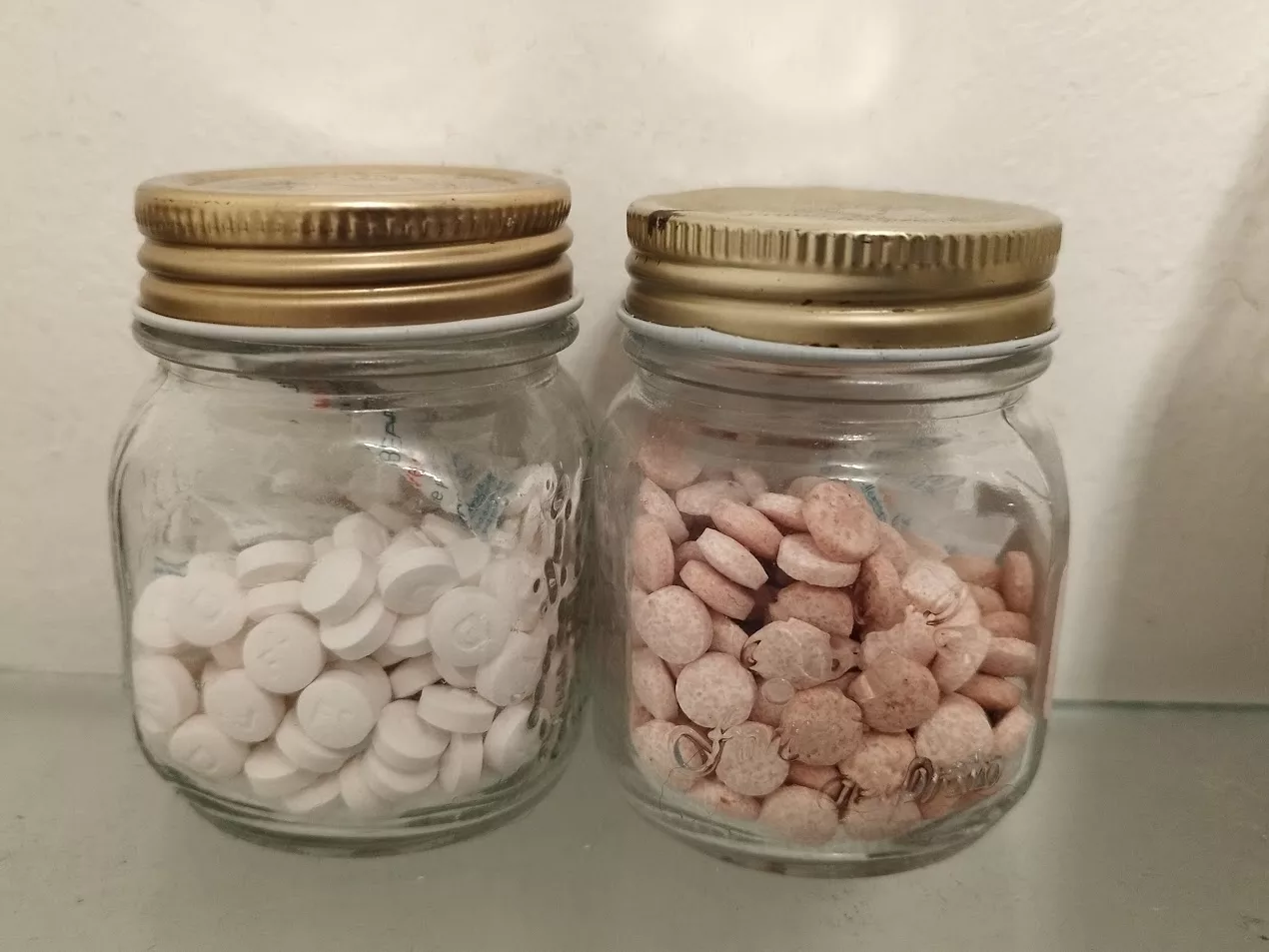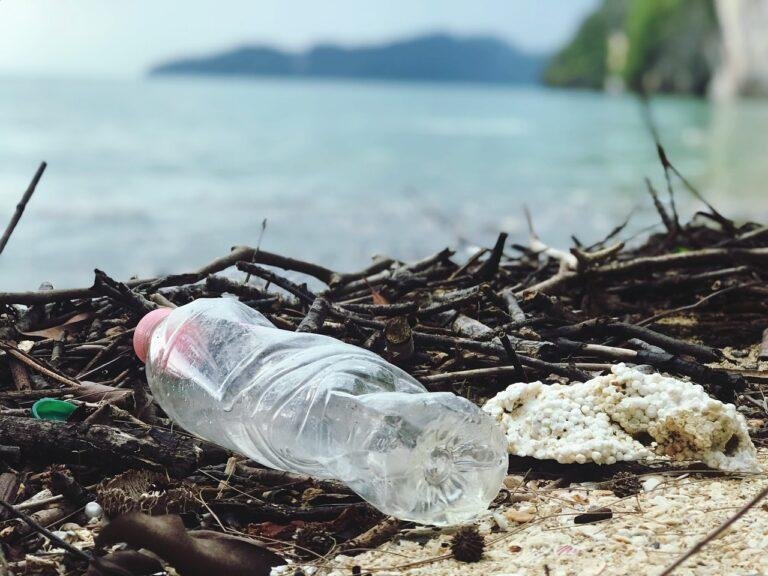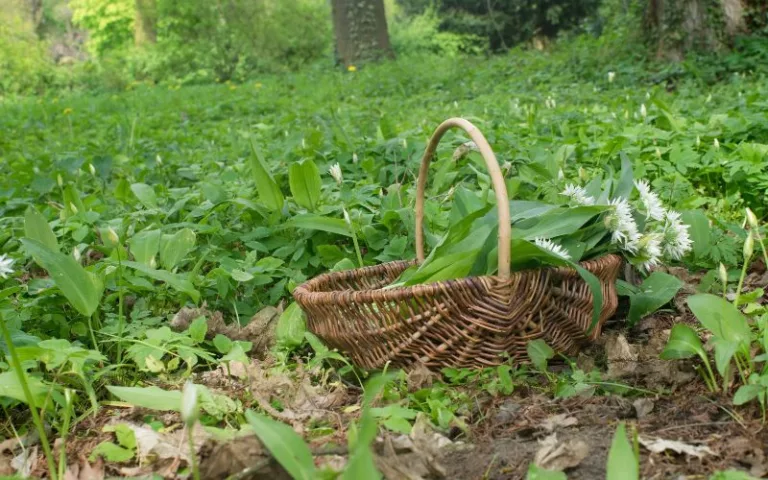Sustainable Dental Routine: How to Care for Your Teeth and the Planet
Just a heads up, this post contains some affiliate links. That means that we earn a small commission if you buy the product at no extra cost to you. That allows us to continue to research and share interesting articles with you. :)
Taking care of our teeth is essential for our overall health, but some traditional dental products and procedures are bad for the environment.
It means using natural and eco-friendly dental products, using less water, saving energy, getting rid of dental products in the right way, and more.
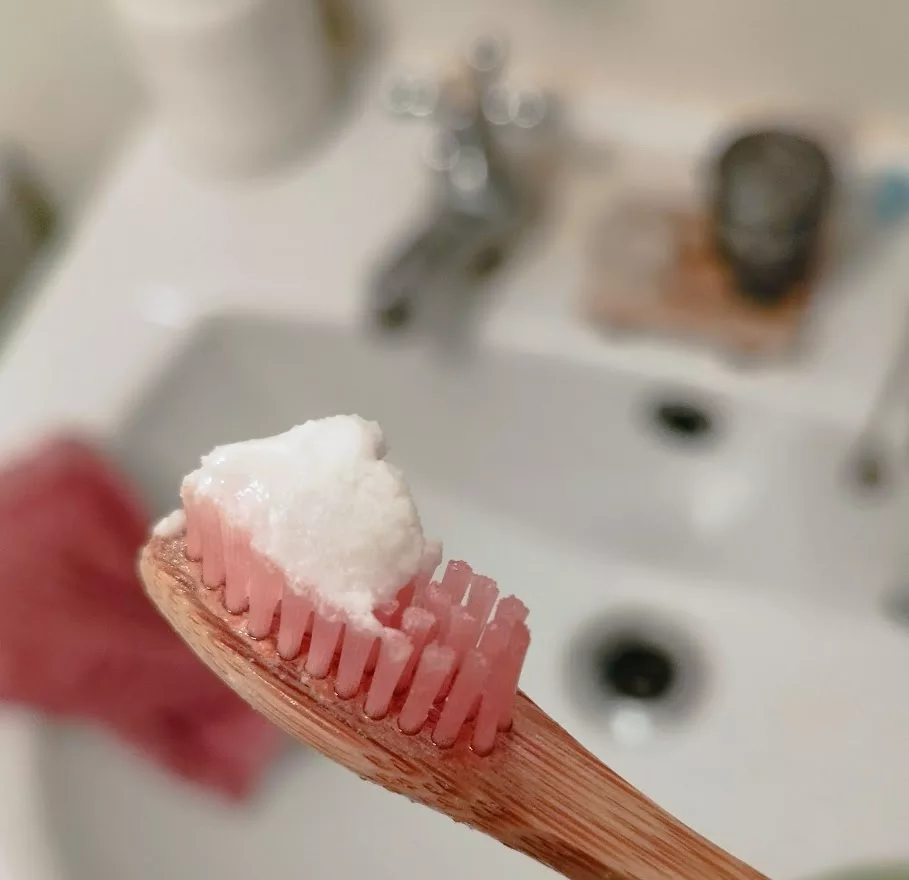
Plastic toothbrushes, floss, and other dental products contribute to the growing plastic waste problem in our landfills and oceans. Additionally, traditional dental products often contain harmful chemicals that can harm the environment and wildlife.
Making the switch to a sustainable dental routine not only reduces our carbon footprint but also promotes a healthier lifestyle. However, we understand that making the transition can be stressful and challenging for some people.
This article will cover various tips and tricks for maintaining a sustainable dental routine, including using eco-friendly dental products, reducing water usage, opting for natural oral care remedies, avoiding harmful ingredients, properly disposing of toothbrushes, and conserving energy.
By the end of the article, you will have a better idea of how important a long-term sustainable dental routine is and how to start one.
Swapping To A Sustainable Dental Routine When You Have A Phobia
I’ll be real in this article; I have a severe dental phobia. It’s so bad that I need sedation to have a checkup, and I’ve even been through dental psychology to deal with traumatic experiences. So I get it. Swapping up your routine is HARD!
Even the thought of trying a new dental product can be overwhelming. However, making the switch is worth it, and it has made dental care a more comfortable experience for me.
Switching to natural and eco-friendly dental products can reduce exposure to harmful chemicals and toxins, alleviating oral health problems such as gum disease and tooth decay. Additionally, natural and eco-friendly products can be gentler on the mouth and gums, making dental care a more comfortable experience overall.
By switching to a sustainable dental routine, we can help reduce our carbon footprint and promote a healthier lifestyle. It’s important to remember that small changes can make a big difference, and everyone can positively impact the planet by making eco-friendly choices in their sustainable dental routine.
A sustainable dental routine is all about caring for your teeth and gums while being environmentally conscious. It means using natural and eco-friendly dental products, using less water, saving energy, getting rid of dental products in the right way, and more.
Why Sustainability Matters in Oral Care
Plastic Waste
Traditional dental products and practices can significantly impact the environment. One of the most significant issues is plastic waste.
Let’s consider the numbers.
- There are around 67 billion people in the UK
- UK dentists recommend changing out your toothbrush every three months.
- That means that each person, on average, uses around four toothbrushes or toothbrush heads a year.
- The average lifespan for an adult in the UK is around 70 years
- People start brushing their teeth from around 1 year old.
With all of these numbers considered, the average UK adult will use around 4 toothbrushes or toothbrush heads per year, or 276 toothbrushes or toothbrush heads in their lifetime. The current UK population will use 268 billion toothbrushes or toothbrush heads in just one year, which is 18,492,000,000 toothbrushes; 18,492 billion in an average lifespan.
It’s estimated that over 3.5 billion toothbrushes are used and discarded annually worldwide, most of which are made of plastic and end up in landfills and oceans. This plastic waste takes hundreds of years to break down, causing environmental harm and affecting marine life.
Dental Products and Chemicals
Traditional dental products often have chemicals that are bad for the environment and wildlife, as well as plastic waste. Some brands of toothpaste, for example, have microbeads and small pieces of plastic that can get into waterways and hurt marine life.
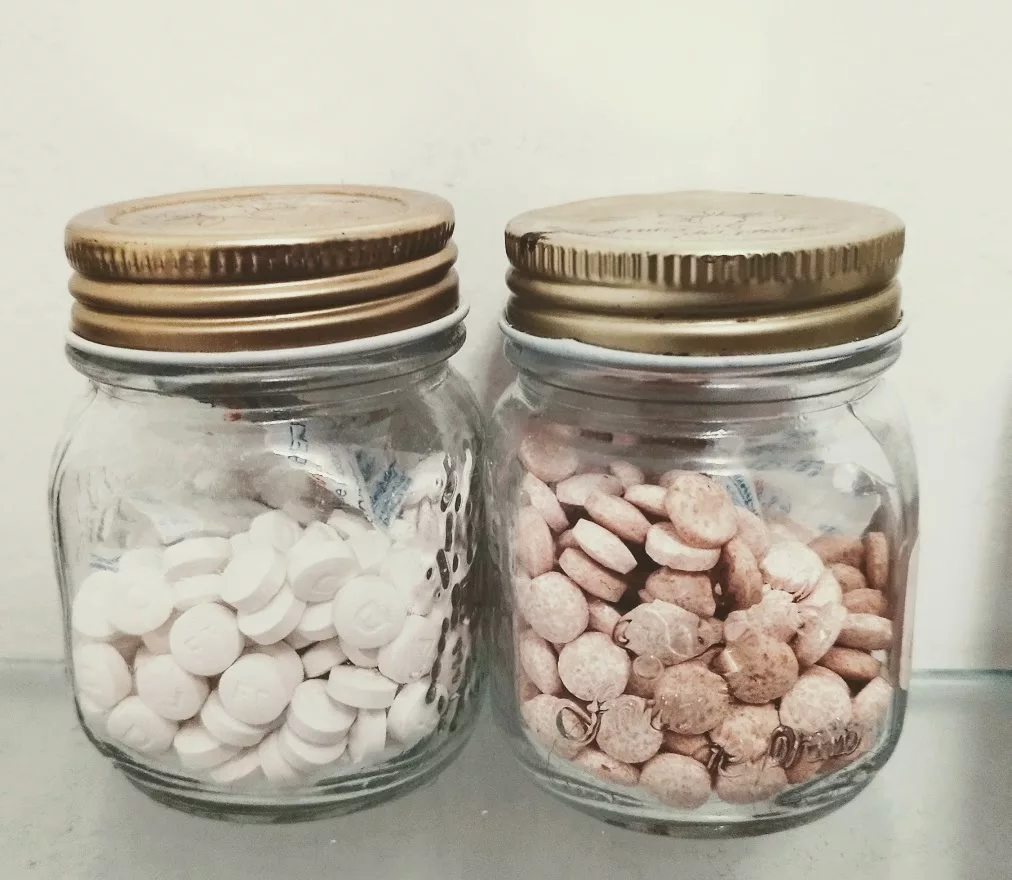
Also, some traditional dental products have ingredients like triclosan, which is a poisonous chemical that has been shown to harm aquatic ecosystems.
Traditional dental products and practices are bad for the environment, so it’s important to choose greener alternatives. Switching to natural and eco-friendly dental products helps reduce plastic waste and the use of harmful chemicals that can harm the environment.
By making small changes to our dental routines, we can make the world a better place and help ourselves and future generations live healthier lives.
Choosing eco-friendly ways to care for your teeth is important not only for the health of our planet but also for the health of the people who will live here in the future. Traditional dental products are made and thrown away in ways that cause a lot of environmental problems, like plastic waste and water pollution. By choosing eco-friendly alternatives, we can reduce our carbon footprint and help make the future more stable.
Also, traditional dental products often have chemicals that are bad for our health and the environment. For example, some brands of toothpaste have ingredients like triclosan, which is a poisonous chemical that has been shown to harm aquatic ecosystems. By choosing natural and eco-friendly dental products, we can limit our exposure to chemicals and toxins that are bad for us.
A Healthier Lifestyle
Finally, choosing eco-friendly alternatives can also promote a healthier lifestyle. For example, many natural dental products have ingredients that are easier on the mouth and gums. This makes getting dental care in general more comfortable.
Some eco-friendly dental products also have ingredients like essential oils and natural antibacterial agents that have been shown to be good for oral health.
Tips for a Sustainable Dental Routine
Eco-Friendly Dental Products
There are many eco-friendly dental products available on the market that are made from natural and sustainable materials. Some examples include:
- Bamboo Toothbrushes: Bamboo toothbrushes are a popular eco-friendly alternative to traditional plastic ones. They are made from sustainable bamboo and often come with compostable or biodegradable bristles.
- Natural Toothpaste: Natural toothpaste is made from plant-based ingredients and free from harmful chemicals and additives. Many natural toothpaste brands use tea tree oil and xylitol, which have been shown to promote oral health.
- Compostable Floss: Compostable floss is biodegradable from materials such as silk or bamboo. This is an excellent alternative to traditional floss, often made from plastic and takes hundreds of years to break down.
Using eco-friendly dental products helps reduce your carbon footprint and promotes good oral health. For example, natural toothpaste is free from harmful chemicals that can damage tooth enamel.
At the same time, bamboo toothbrushes have been shown to be just as effective as traditional plastic toothbrushes in removing plaque and promoting good oral hygiene.
Water Conservation Tips for a Sustainable Dental Routine
Water conservation is an essential part of a sustainable dental routine. Unfortunately, traditional dental practices can waste a lot of water, which can lead to water shortages and damage to the environment.
Here are some tips for reducing water usage during your dental routine:
- Turn off the tap while brushing: Turn off the tap while brushing your teeth can save significant water. Leaving the tap running while brushing can waste up to four gallons of water per minute!
- Use a cup of water to rinse: Instead of letting the tap run while rinsing your mouth, use a cup of water to rinse instead. This can help conserve water and is as effective as rinsing with running water.
- Install a water-saving faucet aerator: Installing a water-saving faucet aerator can help reduce the water used during your dental routine. These aerators can help reduce water usage by up to 60%.
Using these tips in your new sustainable dental routine can help you save water and live in a more environmentally friendly way.
Natural Oral Care Remedies
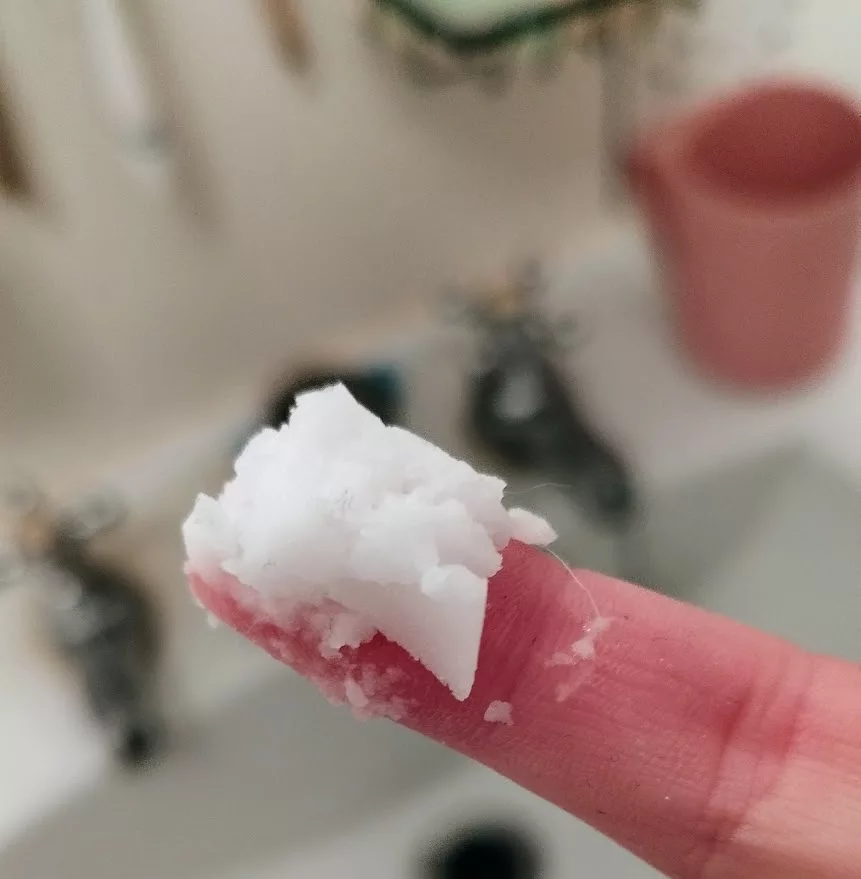
Natural oral care remedies are a great way to promote good oral hygiene without harsh chemicals or additives.
Here are some benefits of using natural remedies for oral care:
- Gentler on Teeth and Gums: Natural remedies such as oil pulling and herbal mouthwash are often gentler on teeth and gums than traditional dental products. They can help reduce inflammation, fight bacteria, and promote good oral health without causing irritation or discomfort.
- Environmentally Friendly: Natural remedies are often made from plant-based and biodegradable ingredients. This makes them a more eco-friendly option than traditional dental products, which can contribute to plastic waste and environmental degradation.
Here are some natural oral care remedies that you can make at home:
- Oil Pulling: An ancient Ayurvedic practice involves swishing oil (such as coconut or sesame) in your mouth for several minutes. This can help remove bacteria and promote good oral health. To do oil pulling, swish a tablespoon of oil in your mouth for 10-15 minutes, then spit it out and rinse your mouth with water.
- Herbal Mouthwash: Herbal mouthwash is an excellent alternative to traditional mouthwash, which often contains alcohol and other harsh chemicals. To make herbal mouthwash, simply steep herbs such as peppermint, sage, or chamomile in hot water for several minutes. Strain the mixture and use it as a mouthwash after brushing your teeth.
- Baking Soda and Hydrogen Peroxide: Baking soda and hydrogen peroxide can be used together to create a natural teeth-whitening solution. Mix baking soda and hydrogen peroxide to make a paste, then brush your teeth with the mixture for 2-3 minutes. Rinse your mouth with water when finished.
Using these natural remedies for oral care can help you keep your teeth clean and reduce your impact on the environment. And by making these remedies at home, you can save money and have more control over the ingredients you use.
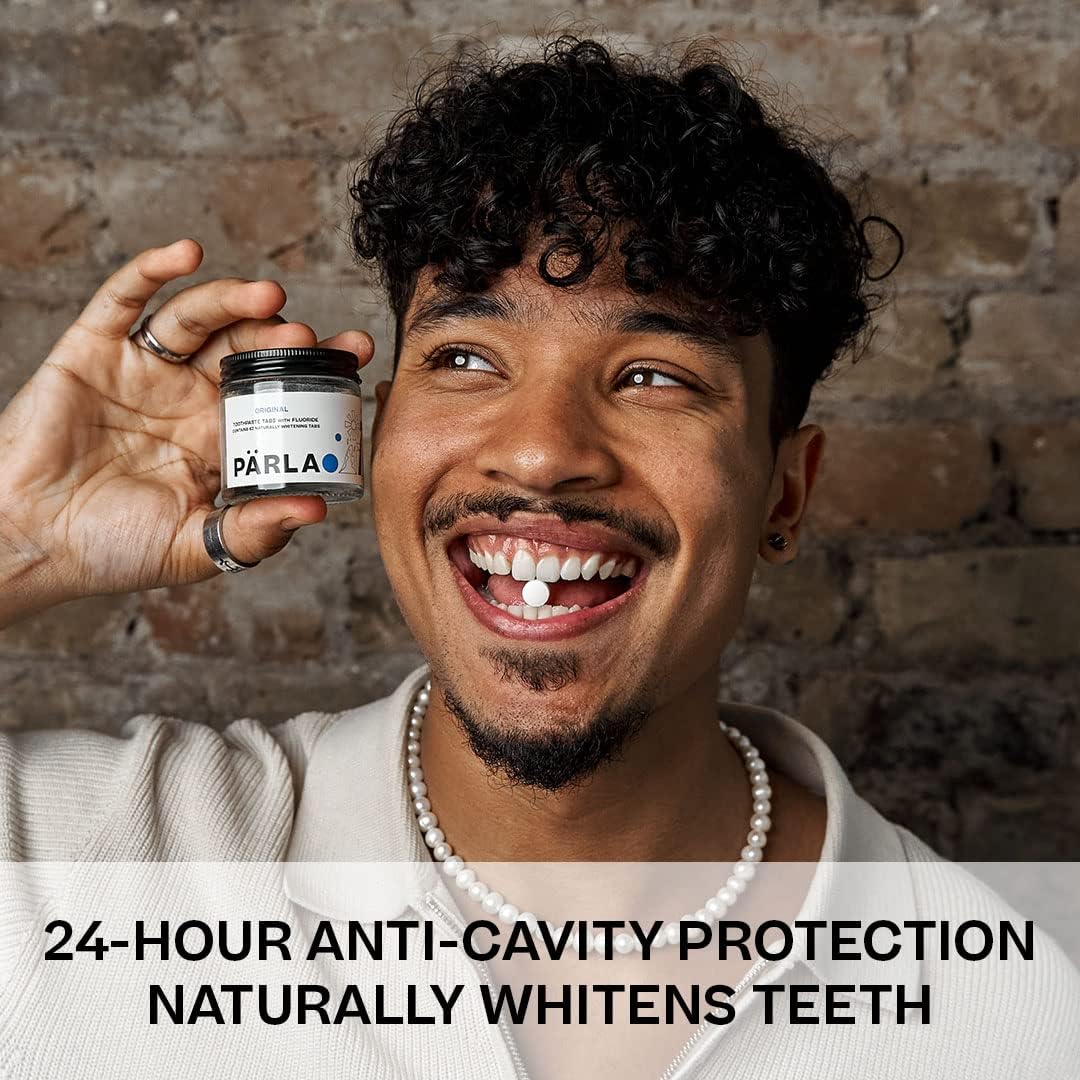
If you’re interested in purchasing natural oral care products, some popular retailers include:
- PÄRLA: PÄRLA offers an eco-friendly and ethical alternative to toothpaste tubes with their dehydrated toothpaste tablets in a reusable glass jar with plastic-free packaging. Made in the UK, PÄRLA contains fluoride and is free of waste, plastic, animal cruelty, palm oil, and SLS. The product protects teeth and the environment, as well as providing a greatly reduced carbon footprint.
- DENTTABS: Denttabs‘ vision is for health, innovation, and sustainability to have a place in every bathroom in the world. Their mission is to remind people of the impact of small changes on their health and the environment. They value sustainability, courage, transparency, and integrity in their operations and product offerings.
Proper Toothbrush Disposal
Traditional plastic toothbrushes can have a significant environmental impact. It’s estimated that over 3.5 billion toothbrushes are used and discarded annually worldwide, most of which are made of plastic and end up in landfills and oceans.
Plastic waste takes hundreds of years to break down and can cause environmental harm and even affect marine life. Proper disposal of toothbrushes is vital to reduce plastic waste and protect the environment.
Here are some tips for disposing of toothbrushes properly:
- Recycling: Many plastic toothbrushes are made from recyclable materials. Check with your local recycling program to see if they accept toothbrushes for recycling. You may need to remove the bristles before recycling the handle.
- Upcycling: Toothbrushes can also be upcycled into various household items, such as cleaning tools or art projects. Consider repurposing your old toothbrush instead of throwing it away.
- Bamboo or Biodegradable Options: Switching to bamboo or biodegradable toothbrushes is an alternative to plastic toothbrushes. These options are made from sustainable materials and are biodegradable or compostable, which reduces their environmental impact. When it’s time to dispose of these toothbrushes, they can be composted or recycled in some cases.

If you’re interested in purchasing eco-friendly toothbrushes, many options are available online. Some popular retailers include:
- Goaycer: Goacyer Bamboo toothbrushes are eco-friendly, made with biodegradable and sustainable Mao bamboo, and their packaging is 100% biodegradable and compostable. Their handle is designed for a comfortable grip and precision cleaning, and their carbonised finish repels water. These toothbrushes feature medium-firm, BPA-free bristles that are gentle on teeth and gums, and come in a 10-pack with different coloured bristles for the whole family.
- EcoShoots: The EcoShoots Adults Bamboo Toothbrushes come in a pack that includes five different coloured brushes, each made with heat-treated bamboo handles and BPA-free Nylon-4 bristles. The packaging is made from recycled materials and can be recycled at home, creating a closed loop. With a smaller brush head and minimal design, these toothbrushes use less material and energy to produce than others on the market.
- The Humble Co.: The Humble Co. Plant Based Toothbrushes have been developed and tested by dentists to ensure their effectiveness. They offer a plant-based toothbrush made with a handle based on corn starch materials and A-grade bristles, as well as a regular bamboo toothbrush. Additionally, their purchases support the Humble Smile Foundation, a Swedish non-profit organisation that funds oral health initiatives in vulnerable communities around the world.
Energy Conservation Tips for a Sustainable Dental Routine
Energy conservation is an essential part of a sustainable lifestyle. Traditional dental care can waste a lot of energy, which can contribute to problems like climate change and air pollution.
Here are some tips for reducing energy usage during your dental routine:
- Use Electric Toothbrushes with Rechargeable Batteries: Electric toothbrushes are a popular alternative to traditional ones. However, they can consume a lot of energy if they are not designed with rechargeable batteries. You can save energy and reduce your carbon footprint by using electric toothbrushes with rechargeable batteries.
- Turn Off Power Outlets When Not in Use: Turning off power outlets when not in use can help reduce energy consumption during your new sustainable dental routine. Many electronic dental products, such as electric toothbrushes and water flossers, consume energy even when not in use. Turning off the power outlet when these products are not in use can help save energy.
- Use Natural Light: Try to brush your teeth during the day using natural light instead of artificial lighting. This can help reduce energy consumption and promote a more sustainable lifestyle.
Using these tips in your new sustainable dental routine can help you use less energy and live in a more environmentally friendly way.
If you’re interested in purchasing eco-friendly electric toothbrushes, many options are available online. Some popular retailers include:
- Fayet: The Fayet Bamboo Smart Sonic Electric Toothbrush is an eco-friendly bamboo electric toothbrush with 5 modes for cleaning, an easy-to-use design, low noise, and a long battery life with USB charging. It provides powerful cleaning for adults, with up to 39,000 strokes and the ability to remove up to 100% more plaque. The bamboo head is sustainable and the handle is recyclable, making it a great choice for those who want to reduce their environmental impact.
- Brushboo: The Brushboo Sonic Electric Toothbrush is the top eco-friendly electric toothbrush in Europe, with recyclable materials and a reusable packaging. It features soft, eco-friendly bristles, five cleaning modes, and up to 39,000 strokes for powerful, precise cleaning that removes up to 100% more plaque.
- Suri: The SURI Sustainable Sonic Toothbrush is slim yet powerful, with a MicraSonic magnetic motor delivering 33,000 vibrations per minute. Its plant-based head and bristles are recyclable, and it has a long battery life of 40+ days with USB charging. With two cleaning modes, a built-in tongue scraper, and a magnetic mirror mount, this toothbrush removes 300% more plaque for healthier gums.

Conclusion
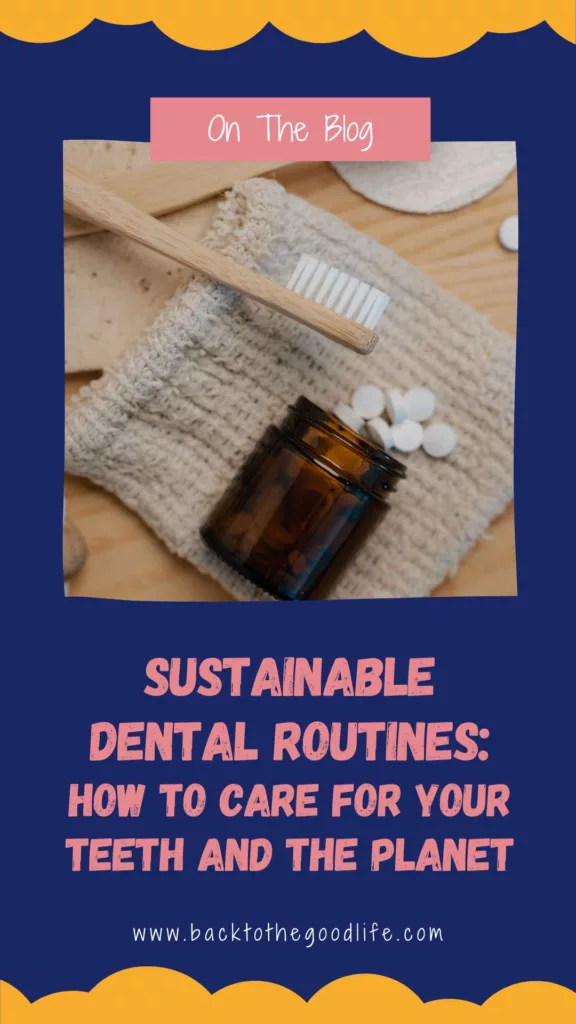
In conclusion, good oral health is important not only for our own health but also for the health of the planet. Unfortunately, traditional dental products and practices can hurt the environment. Still, if we change our dental habits for a sustainable dental routine and to be more eco-friendly, we can reduce our carbon footprint and encourage others to do the same.
To have a sustainable dental routine that is good for the environment, we can use eco-friendly dental products, save water and energy, use natural remedies for oral care, and throw away toothbrushes in the right way. By making these small changes, we can reduce our environmental impact and promote good oral health.
We encourage readers to make small changes in their dental routine to help protect the planet. Whether switching to an eco-friendly toothbrush or turning off the power outlet when not in use, every action counts. Working together can create a more sustainable future for ourselves and future generations.
Back To The Good Life is a participant in the Amazon Services LLC Associates Program, an affiliate advertising program designed to provide a means for sites to earn advertising fees by advertising and linking to Amazon.com. We also participate in other affiliate programs which compensate us for referring traffic.

